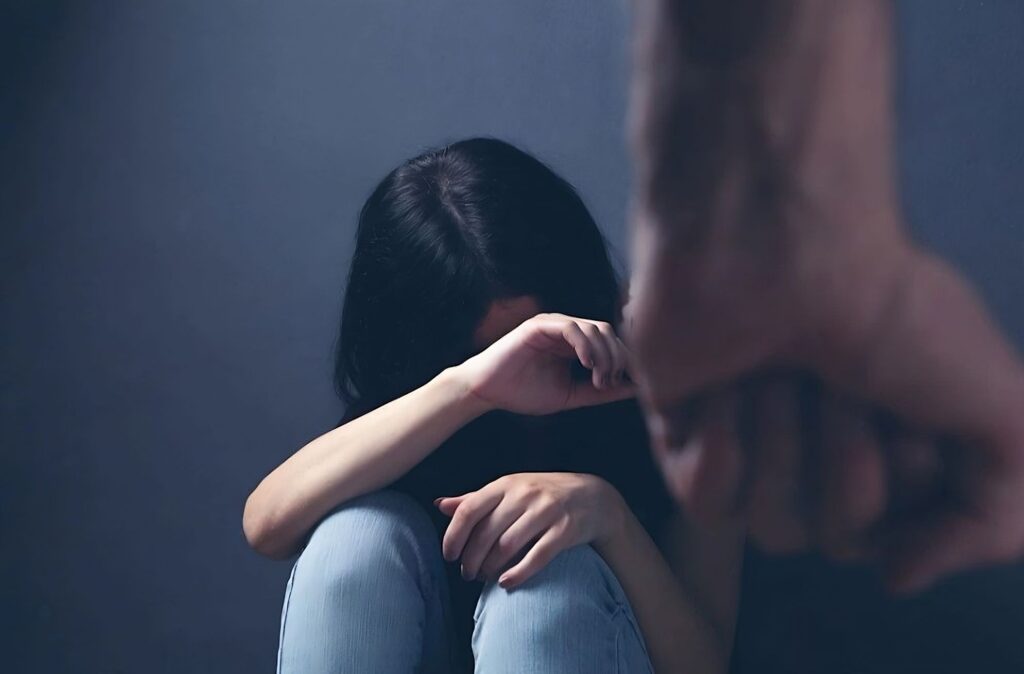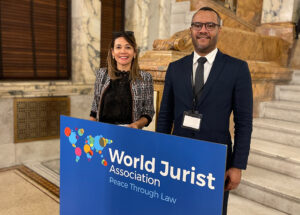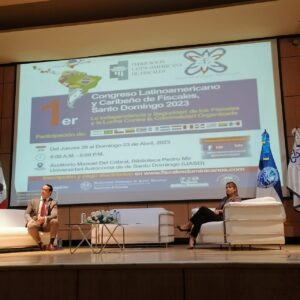Since last February the country has been shocked by two cases that captured national attention: the violent death of the teenager Esmeralda and more recently that of the communicator Chantal. They are two separate cases but with the same fatal result: the death of 2 innocent females at the hands of their aggressors.
Specifically, we can note that in the second case, procedural elements that could well serve as an alert to the authorities for effective protection of the victim, arose: a prior arrest for shooting with a firearm by the aggressor, a release order notwithstanding this circumstance (which in practice it is known it can happen at the request and insistence of the victim, as a result of the same complexity that characterizes cases of gender violence) and a restraining order as a response from the justice system for purposes of protection to the victim.
It is not the first time that an outcome like this happens in cases of that type; If we analyze the cases with a fatal outcome after the victim has given the aggressor an opportunity, we will find that there have been several cases that have reached this dimension. The restraining orders, protection orders, provisional release orders are not fulfilling their objective: to keep the aggressor away from the victim, to protect the victim from their aggressor, because after these orders have been issued, who gives a real and effective follow-up to ensure that they are fulfilled?
The victim protection system that exists in the country is deficient, it drags along procedural inequalities that put the victim at a disadvantage before the justice system, since it does not have a sustainable, robust and strengthened structure capable of responding to their needs when it is necessary to deal with a criminal situation.
The Constitutional Court considered it this way when it determined that: “the service to the victims is offered in a limited way; this is so, given the deficiencies that said service presents, both in relation to the fact that there is not an office in each province or judicial district and the fact that they do not have a broader portfolio of lawyers that allows them to provide assistance to those people who function as victims and who require it in the criminal proceedings of the country”. Paragraph 10.17 p. 25 Judgment TC/0349/22.
As a consequence of the foregoing, it is necessary that the competent authorities called upon to study and analyze the reality experienced by the victims of this crime in the country, seek to provide an effective, sustainable and above all real response in the protection of the victim´s life.
From our point of view, the first step to achieve this effective protection is to adopt a law to protect victims of crime, as many countries in the Latin American region and the world have done. The law will be the instrument through which the rights of the victims will be stipulated, as well as the obligation and responsibility of the State in responding to the protection of their rights when they have been violated.
In this way, a comprehensive protection law for crime victims would be inclusive and not exclusive, as it will cover all types of victims contemplated in criminal law: robbery victim, sexual abuse victim, gender violence victim, etc.
Second, to have an institute for victim´s attention where they are listened to, well received, kindly treated, which facilitates their access to justice, the effective protection of their rights and emotional restoration for the damage caused. This institute will be contemplated by law, as in other countries, and will have qualified professionals to respond and accompany the victim in accordance with the crime from which she has been harmed.
The idea is that said professionals (a psychologist and a lawyer) provide support to the victims from the moment of their contact with the system because part of the failure that we see many times in crimes of gender violence for example, is that at the time of making a decision, the victims make it due to an emotional situation or family attachment and not based on the reality of the situation that they are having with the aggressor at that moment. Obviously they are not guilty or responsible for anything that have happened to them because they are the victims, but in a critical emotional state of justice problems with who was or is their partner, their judgment can be clouded when making a protection decision for them, and therefore immediate psychological intervention is necessary.
The legal and psychological accompaniment of the victims from the beginning of their cases give them tools to understand what is most convenient for them in a reasonable and non-emotional way.
Third, the alternative measures to be imposed must be constantly monitored so that their effectiveness does not remain on paper; a restraining order must at least constantly monitor the movements of the aggressor and the victims in order to ensure their protection, paper alone is just not enough.
Last but not least, the law must contemplate the budget that the State will have to respond effectively to all this comprehensive system that will respond for the protection of the victims. It already did it in 2004, only for those accused of a crime; the country has the National Public Defense Service Law, which is nationwide in scope and has excellent services, as well as professionals that protect the rights of the accused. However, as I have already written in previous occasions, the Dominican State is indebted to the victims because nothing has been legislated towards her and this is the opportunity to call for reflection.
Once we have a law that obliges the authorities to provide resources for the creation of the institute of the victims with national scope, with professionals advocating for them, protecting their rights and restoration, ensuring that their lives are safe from her aggressors because the State has provided personnel to comply with any decision made in their favor, then the history of the victims will be another. Let us continue reflecting and analyzing the situation of the victims in our country without stopping and until we come out with the best solution.
Sonia Hernández is a criminal lawyer, former prosecutor of the Santo Domingo Province. She has a master’s degree in Fundamental Rights from Universidad Carlos III de Madrid, Spain and a specialization in Criminal Procedure Law from Universidad Autónoma de Santo Domingo (UASD). She is currently a practicing lawyer and expert consultant on human trafficking for the International Justice Mission, Dominican Republic (IJM).






